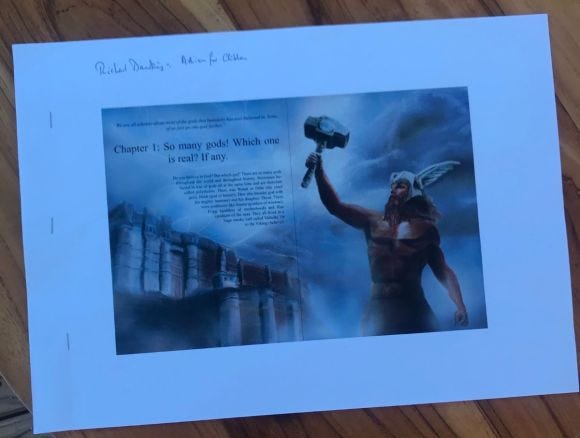You can pretty much always add value
In 2017, I spent a few days traveling through Ecuador and the Galapagos Islands with Richard Dawkins.
If you don’t know Dawkins, he’s a famous writer, atheist, and evolutionary biologist. He’s written more New York Times Bestsellers than most writers have written books. He’ll be remembered as one of history’s most influential thinkers.
So you can imagine my surprise when one afternoon he passed around a manuscript of his next book and asked a few of us on the trip for feedback.
What on Earth could I tell Richard Dawkins about how his next book could be better?
The book was a beginner’s guide to atheism written for kids and young adults who were having doubts about the Bible and religion in general.
It was meant to be a sort of guide to help them articulate their doubts.
And after I read the first couple chapters, I realized something…
Yeah, these chapters are absolute fire, but what’s the point if the kid never brings it up to their parents? If they’re going to build confidence in their new beliefs, they need to ask adults questions and then see how bad their answers are.
The rest of the group chimed in with suggestions, but it was mostly just one form of praise or another.
Dawkins politely nodded along...
“You should add questions at the end of each chapter that a kid can ask their parents at the dinner table,” I told Dawkins.
He lit up.
“That's a wonderful idea. Yes, I love that,” he said. He asked his girlfriend to write down the suggestion.
It was the only one he wrote down.
"Damn," I thought to myself. "I guess I can pretty much always add value if I just try."


